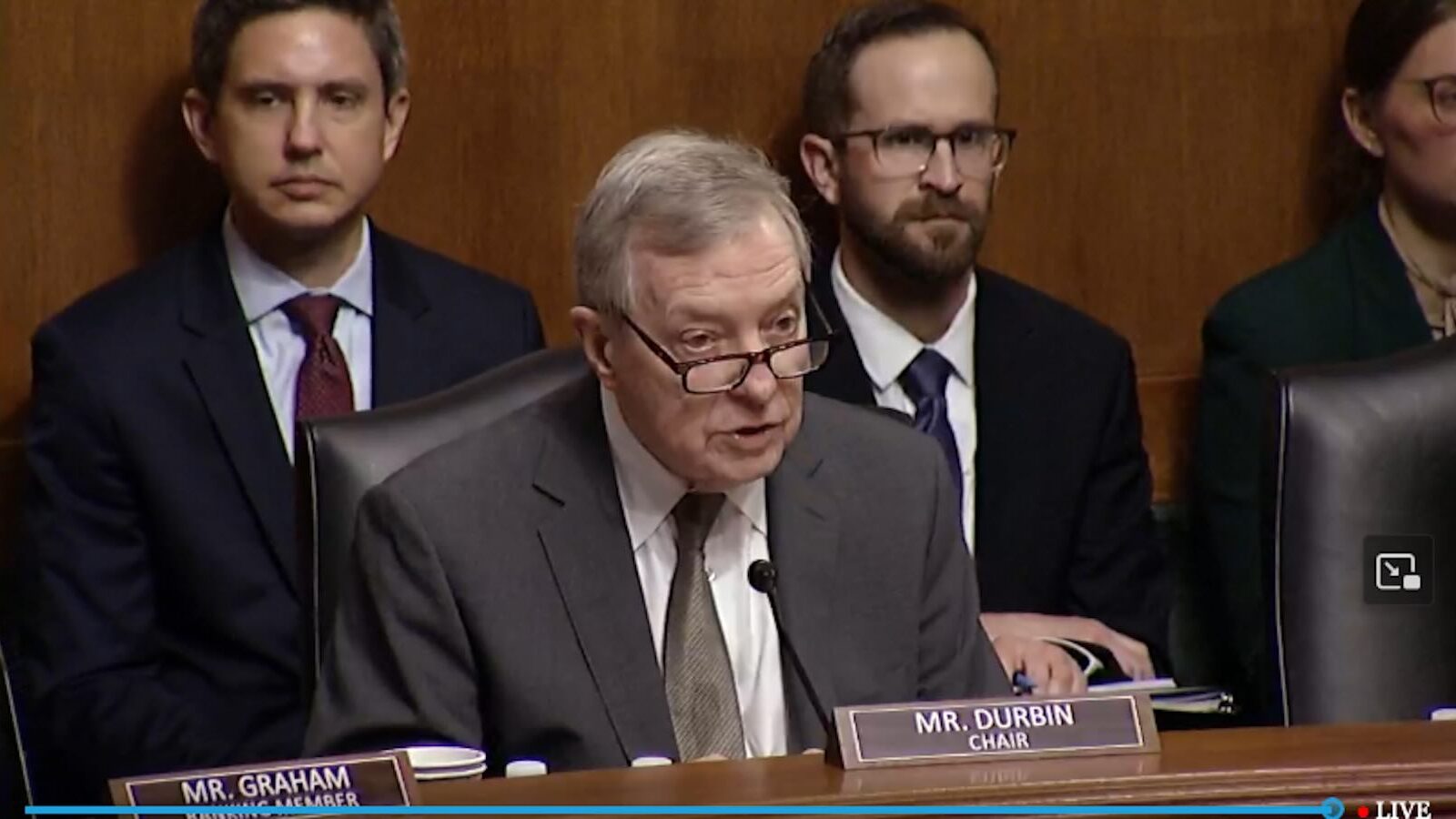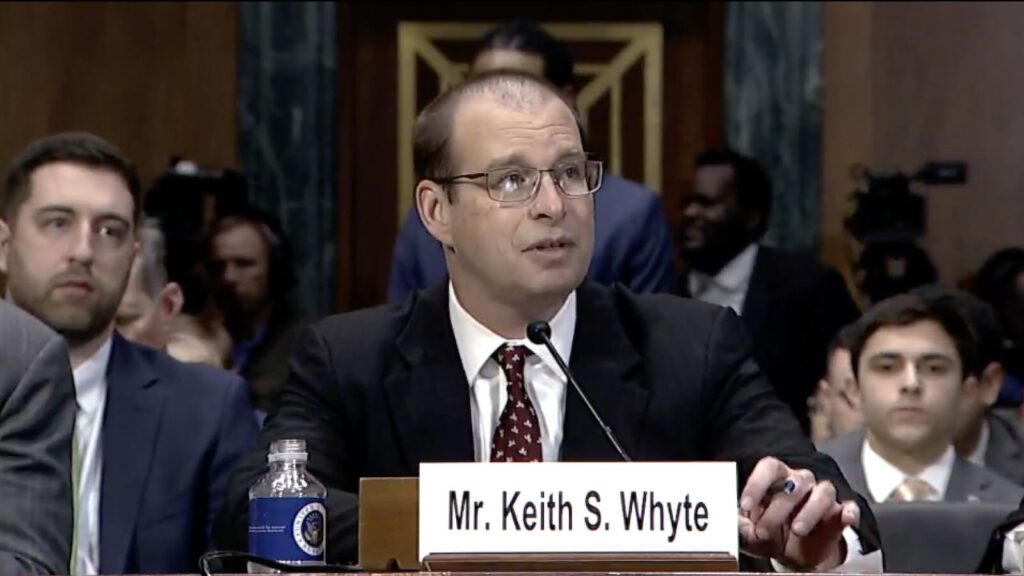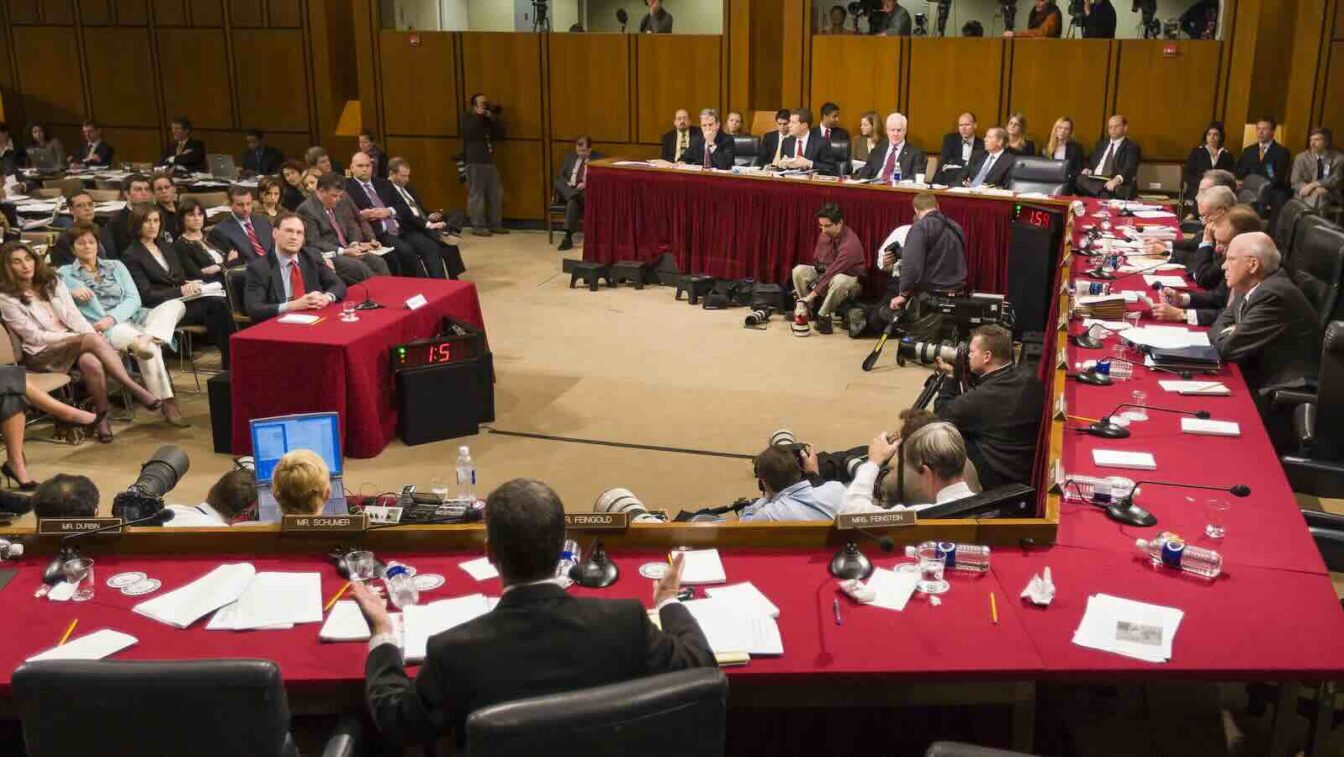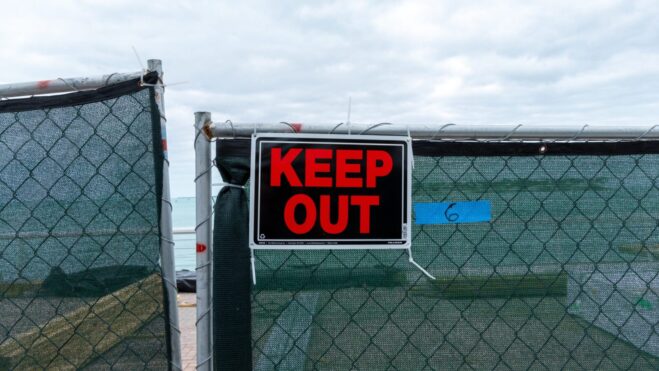Athlete Harassment, Prop Bets, Microbetting Among Topics Assessed At Senate Committee Hearing On Sports Gambling
Backers of GRIT Act, SAFE Bet Act had their say; further meetings on sports betting theoretically await
5 min

About an hour into the U.S. Senate Committee on the Judiciary’s much-anticipated hearing on legalized sports betting Tuesday morning, Sen. Thom Tillis of North Carolina turned to Committee Chair Dick Durbin of Illinois and said, anticipating that Durbin will no longer chair the committee when the next Congress begins in 2025, “I don’t think you’re going to get this solved before you pass the gavel over.”
Then, to chuckles from several in the room, he added, “I’m willing to bet on that, incidentally.”
In a wide-ranging discussion that touched on numerous sub-topics without drilling down in great depth on any of them, it was clear that most of the senators and expert witnesses were not looking for resolution during what was the final meeting of this particular committee in this 118th U.S. Congress.
The goal, rather, was to introduce the topic and perhaps set the stage for further conversation.
The timing of meeting seemed particularly inspired by the fact that two significant federal bills concerning gambling — the GRIT Act to combat gambling addiction, and the SAFE Bet Act to establish federal regulations on gambling companies — had been proposed but not acted on during the 2024 calendar year.
“It is critical,” Durbin said as he wrapped up his opening remarks, “that Congress look into sports betting’s impact on America and determine how the industry should be regulated going forward.”
Witness imbalance?
The committee called five experts to testify: NCAA President Charlie Baker, former NFL player and NFLPA representative Johnson Bademosi, National Council on Problem Gambling (NCPG) Executive Director Keith Whyte, former New Jersey Division of Gaming Enforcement Director David Rebuck, and recovering problem gambler and gambling reform advocate Harry Levant.
Between the five witnesses and the various senators weighing in and asking questions, the overall tone was more negative than positive toward the sports betting industry as currently regulated in 39 individual U.S. jurisdictions.
American Gaming Association Senior Vice President of Strategic Communications Joe Maloney issued a statement shortly after the hearing concluded, drawing attention to this imbalance:
“Today’s hearing notably lacked an industry witness. This unfortunate exclusion leaves the Committee and the overall proceeding bereft of testimony on how legal gaming protects consumers from the predatory illegal market and its leadership in promoting responsible gaming and safeguarding integrity. We remain committed to robust state regulatory frameworks that protect consumers, promote responsibility, and preserve integrity of athletic competition.”
(Though the AGA’s statement said the hearing “lacked an industry witness,” Rebuck’s presence stood in contrast to that.)
Among those who were invited, topics ran the gamut. There was talk of excessive sportsbook advertising, betting on college campuses, online abuse of college athletes by bettors, match-fixing, prop betting, responsible gambling and problem gambling, the availability of illegal sports betting options, AI targeting of bettors, in-game betting and microbetting, tribal gambling, and underage access — not to mention an off-topic verbal assault on NCAA President Baker by Louisiana Sen. John Kennedy and Missouri Sen. Josh Hawley attempting to turn this into a hearing on transgender participation in college athletics.
Expert statements
Baker’s main objective was to explain the NCAA’s push to ban college player prop betting.
“We’re lobbying states to eliminate prop bets on individual student athletes,” he said. But, Baker clarified, “We understand sports betting’s here to stay, and why it’s better to have it regulated than not.”
He noted that when the NCAA started its campaign against prop bets, 23 of 39 legal sports betting states permitted the wagers on individual college athletes, and now that number is down to 19. Such betting is still offered in most illegal and unregulated markets, though, no matter what states may do to reduce its legal availability.
Bademosi spoke from the perspective of a former athlete who believes not enough is being done to protect athletes.
“The rise of legalized sports gambling has increased levels of fan engagement, but has introduced more stress, new mental health challenges, and has increased the number of threats and incidents of harassment to amateur and professional athletes,” the 34-year-old former NFL cornerback said. “Words cannot begin to express the profound sorrow I feel that the sports we have played to bring our families and communities together have been perverted to a point where fans are attacking athletes.
“I believe that sports betting can be operated in a way where the integrity of the game is not compromised,” Bademosi continued, “but that will take significant efforts both on and off the field to ensure that bettors and athletes are acting in good faith, and athletes are not put in harm’s way. Congress has a role to play in passing policies that reinforce the integrity of the game while also protecting athletes.”
Whyte, noting that the NCPG is “non-partisan and neutral, neither for nor against legalized gambling,” offered statistics on problem gambling and singled out its rise among the younger, male demographic since sports betting legalization began.
“It is essential to pass Senator Blumenthal’s GRIT Act,” Whyte insisted.

Rebuck provided a contrast to his fellow witnesses, declaring, “I am here today as a proud advocate for state-led regulation of legal gaming, including sports betting.” He argued that “legalized and regulating sports wagering is fundamentally about protecting consumers,” noting that “illegal operators offer no protections, leaving consumers vulnerable.”
He expressed that citizens in numerous states have voted for the “freedom” to wager on sports, and said, “I urge the committee to respect the successes that states have achieved in regulating in the past. Federal oversight is clearly not needed.”
Levant offered a dramatic perspective, touching on his tale of gambling addiction ruining him, using the term “personal carnage.” He emphasized research showing that one in two gambling addicts will contemplate suicide and one in five will attempt it.
He said he supports legal sports wagering, but expressed that online betting and the use of artificial intelligence, particularly for creating in-game betting markets and micro-betting markets, has made the activity excessively dangerous.
“DraftKings recently purchased an AI company called Simplebet,” Levant said,
“so DraftKings now owns the technology to deliver targeted, AI-generated gambling to each individual user.”
Accidental self-owns and lightly addressed topics
When the conversation turned to betting scandals, Sen. Durbin referenced both Pete Rose and the Black Sox scandal — inadvertent reminders that such issues existed long before PASPA fell in 2018.
Sen. Marsha Blackburn of Tennessee also offered an inadvertent argument that didn’t help the anti-sports-betting case. She went on an off-topic rant aimed at NCAA President Baker about protecting female athletes from online sexual harassment, which served to remind observers that student-athletes are frequently harassed for reasons independent of sports wagering.
Sen. Tillis noted that he wouldn’t vote for national legalization of sports betting, but that he would support a federal commission creating a framework and rules that states would have to confirm with. “Federal government’s going to have to play a role,” Tillis opined.
Connecticut Sen. Richard Blumenthal, one of the authors of the SAFE Bet Act, called attention to the way operators entice customers with so-called “risk-free bets” and other promotions. “The nomenclature and the techniques and the sophistication of the trading practices here make Wall Street look like child’s play,” Blumenthal said.
He proceeded to ask each of the five witnesses if they would support the SAFE Bet Act. Levant (who helped write the bill) and Baker were firmly in the “yes” camp, Bademosi said he supports the general idea of it but is “not familiar with every detail” of the legislation, Whyte said the NCPG is neutral on it, and Rebuck staunchly opposed the federal intervention.
Two noteworthy topics were raised only in passing.
Vermont Sen. Peter Welch brought up the antitrust issue at the heart of his request for an investigation into DraftKings and FanDuel’s domination of the space and asked Levant about it, but Levant pivoted into an answer about micro-betting.
And Sen. Adam Schiff of California touched on winning bettors being limited by sportsbooks — Schiff used the term “throttling” rather than “limiting” — but none of the witnesses offered a response on that subject.
The meeting adjourned after an hour and 45 minutes of discussion, kicking the can down the road for the 119th Congress to perhaps dig into more consequentially next year.






